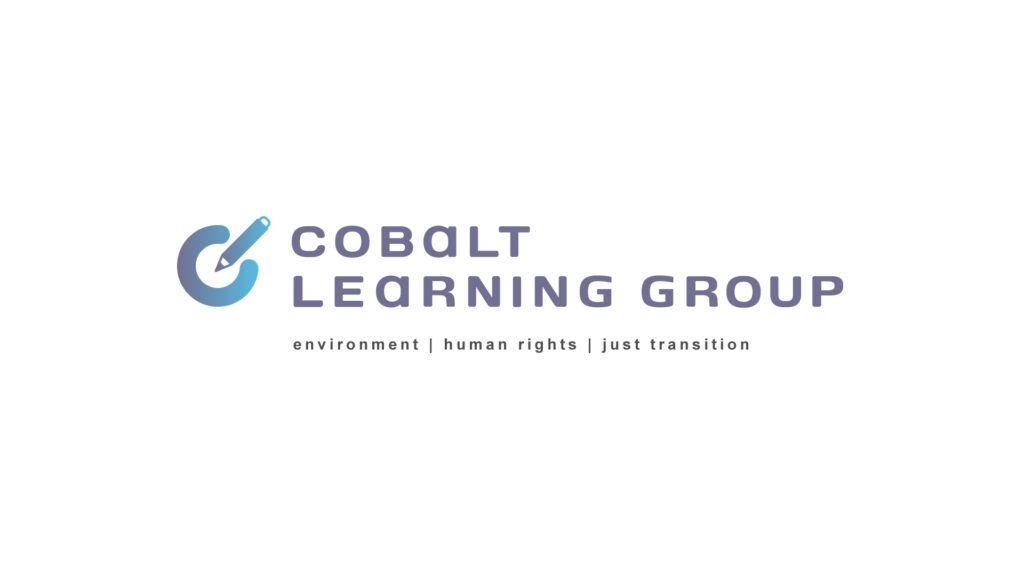Cobalt Learning Group: Ten Fundamental Learnings to Take Away from 2023
Susannah McLaren, Head of Responsible Sourcing and Sustainability, Cobalt Institute
In 2022, the Cobalt Institute launched the Cobalt Human Rights, Environment and Just Transition Learning Group (the ‘Cobalt Learning Group’). Available to all members of the Cobalt Institute as part of their membership, the CLG is a peer learning group to enable companies to meaningfully implement environmental and human rights due diligence (EHRDD), as captured in the UN Guiding Principles on Business and Human Rights, the OECD Guidelines for Multinational Enterprises (including mineral sector-specific due diligence guidance) and in upcoming legislation.
In Year 1, the priority focus was to introduce the main components of human rights due diligence. In Year 2, the focus was to build on those foundations through a deeper dive into specific components of HRDD and practical applications, and to begin to explore what EHRDD looks like for the cobalt industry (see also). This was executed through a series of in-person workshops, panel sessions and webinars together with guest speakers and our expert advisors Human Level.
The 2024 programme, co-designed with our members, promises to be yet another engaging year we will broaden the scope to take on wider sustainability issues, including nature and biodiversity and other topical areas.
| Ten fundamental learnings from 2023
1. Evolution of company strategies on environmental and human rights issues is a matter of business continuity. Climate change and nature loss are causing companies’ existing salient human rights issues to transform and companies’ existing environmental impacts on people will continue to intensify. 2. Environmental due diligence (EDD) and human rights due diligence (HRDD) need to be approached differently under new regulations (i.e., EU Corporate Sustainability Due Diligence Directive - CSDDD), yet there are connections between the two where companies can build on existing synergies in their business. 3. Internal collaboration and breaking down silos is necessary for meaningful action. Leading companies are strengthening their EHRDD, preparing for new laws and meeting customer and investor expectations by strengthening internal governance and cross-functional efforts. 4. Emerging risks related to newer cobalt sourcing countries like Indonesia are not yet well-known by those in the cobalt industry, requiring stronger HRDD at the outset. It will be key to assess the landscape for human rights and environmental risks, as well as governance of those issues and of the cobalt and mining industry in general. 5. Leverage is a crucial tool for effecting broader change that can’t be achieved by one company acting alone. To address issues like climate change, corruption, endemic human rights issues, etc., leading companies are working to build relationships and to engage with partners across peers and others in the value chain, government, international organisations, international and local civil society organisations and trade unions. 6. There is increasing attention on other new and emerging risks in cobalt value chains. Companies report that customers are asking more and more questions on environmental issues and human rights issues—but not necessarily putting the two together. Companies have an opportunity to “educate” their own customers by putting focus on the ways in which environmental and human rights impacts intersect and how joint due diligence can help address complex risks. 7. Regulations like the CSDDD will require changes in how companies operate, but expert stakeholders predict that the mid- and long-term benefits will outweigh the short-term costs, including through harmonisation of regulations; a true risk-based approach that can help companies address both risks to people and planet, as well as risks to the business; and clarification of expectations for companies, among others. 8. Increases in litigation against companies and governments on climate change, human rights and just transition will create new challenges for the cobalt industry to navigate. Having strong human rights and environmental due diligence practices will go a long way to address these challenges, while keeping engagement with impacted people—especially vulnerable groups—at the center of due diligence efforts. 9. Challenging local contexts for mining can be an obstacle to companies’ ability to address human rights risks in their operations or value chains. Governments have the responsibility to change the operating context in ways that promote human rights, for example through strengthening rule of law, ensuring access to justice, addressing corruption, protecting workers and vulnerable groups and providing sustainable socioeconomic development opportunities that underpin fundamental human rights. Cobalt industry players can use their leverage to engage with and support the role of government, both individually and collectively. 10. Cobalt industry companies are seeing new opportunities to collaborate with one another to tackle the most pressing and difficult issues related to climate change, human rights and just transition. The Cobalt Institute has a crucial role in continuing to bring companies together for practical, concrete action. |

